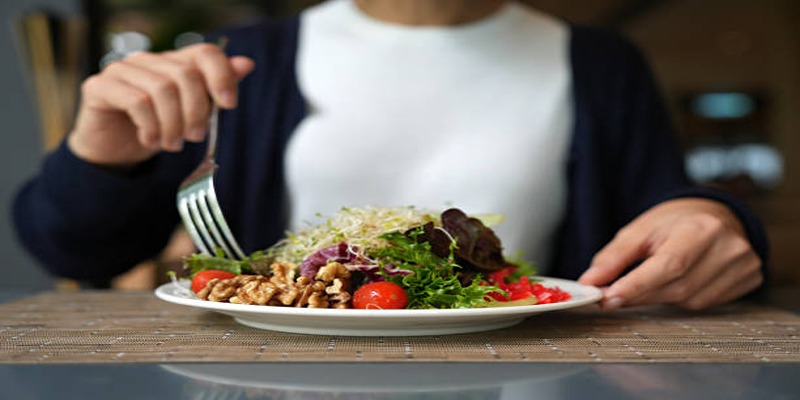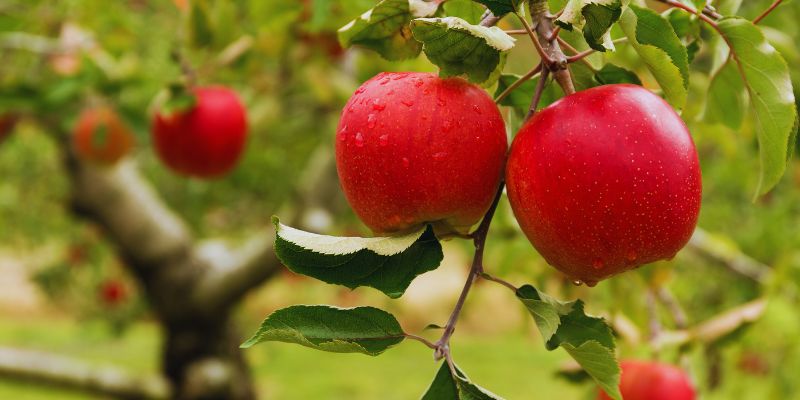Watching your little one have their first solid food bite is a happy moment for parents. At the same time, it can be confusing for first-time parents to decide what and when to give their child without compromising their health. If you are in the same boat, you must remember never to give just anything to your baby and to follow professional advice because it is not just a first experience but a matter of your child's nutrition.
You should always start with soft foods in small pieces, which are easy for the baby to chew and digest. Starting with rice cereal is a common practice, but unfortunately, it is wrong. Adding fish to the child’s diet is always a good idea. If you are still confused, we are sharing some helpful tips here. So, keep reading!

Starting Your Baby On Solids: Three New Tips You Should Know
Starting solids is an important step toward the growth and nourishment of your baby. It is also exciting for the mother and baby as the child learns about and tastes new flavors and textures. But at the same time, you must be vigilant and nourish the child with the right food in the right way. If you are also going to shift your child to new foods, here are some tips for you to follow:
Start with One Feeding Per Day
The first and most important tip is to start giving your baby solid foods only once daily. It is a good way to introduce the baby to new flavors and textures, and it will develop a habit of eating solid foods. Moreover, they should be given food when hungry or in the mood to eat. Also, you must not force them to eat. Especially when babies are sick or teething, they don’t want to eat solids for a few days, which is fine. If you force-feed your child, it will be hard for them to build a healthy relationship with food. Also, you should not worry if your baby doesn't like certain foods. You can try something different that must be healthy and nutritious. Moreover, starting solids doesn’t mean you should stop feeding your child milk, as milk is important for their proper growth and development.
Don’t Give Rice Cereal
Most people start solids with rice cereal. Adding milk enhances the consistency of the cereal, and babies also like the taste. It works well for babies new to spoon-feeding. If you think and do the same, you must stop it. The Consumer Product Safety Commission released a report that highlighted concerns about the amount of arsenic present in rice products. The rice plant is good at taking arsenic from the soil where arsenic-containing pesticides are used. When babies ingest this arsenic, it can increase the risk of various kinds of diseases, including cancer. According to health professionals, babies who eat two servings of rice cereal a day have a double risk of cancer over their lifetime. You can give your baby many other cereals, so why take the lethal risk with rice cereals?
Adding Fish to Baby Diet
Make fish a part of your baby’s diet, not only the baby’s but the whole family’s as well. Fish is packed with so many nutrients. Research shows that children who ate fish during the early years have a reduced risk of allergies by 25%. Fish and different kinds of seafood nourish your child, which is important for their growth and development. It supports brain growth, promotes healthy heart function, and decreases the risk of chronic diseases. Here are some benefits of fish for babies:
- Brain Development: The omega-3 fatty acids in fish and other seafood enhance brain development and improve cognitive skills. The fish increases the grey matter in the brain and enhances your child's IQ and academic skills.
- Heart Health: Fish is also good for your baby's heart health. It lowers the level of bad cholesterol in the blood, ultimately reducing the risk of diseases like stroke and heart attack. For maximum benefit, it is recommended that your baby eat two servings of fish a week.
- Stronger Bones: Another benefit of giving fish to kids is that it improves and strengthens their bone development. Fish is a very good source of vitamin D, which helps absorb calcium, making the bones healthy.
- Supports Immune System: DHA and other omega-3 fatty acids in fish boost the immune system in children and infants. Children who consume fish have a reduced risk of asthma and other respiratory infections.
- Reduced Behavioral Problems: A surprising benefit of omega-3 fatty acids is reduced behavioral problems in children. Children with emotional issues or antisocial behaviors improve when they consume fish over a long period.

Things to Do When Starting Your Baby on Solids
Here are some things that parents must do to keep the baby happy and healthy:
- Offer them different types of food each day so they don’t get bored.
- Talk with your baby about the food they are eating, what it is called, how it tastes, and what color it is, even if they don’t understand what you are discussing.
- You should encourage your baby to explore and feel food with their fingers. Doing this will build their motor skills and thinking.
- Be patient and calm with your baby when they create a mess while eating.
- Give them soft food in pieces so that they can easily pick up and eat.
- It is recommended to follow a step-wise approach, which means gradually increasing food intake.
What Not to Do When Giving Your Baby First Foods:
Here are a few things that you should not do when giving your baby first food:
- Don’t give your child hard, raw vegetables or chunkier pieces, as these can be choking hazards.
- Honey has several health benefits, but don’t give them to babies under one year of age because of the risk of botulism, which is a serious illness.
- Avoid junk foods, sugary drinks, and foods with artificial sweeteners.
- Don’t leave the child unattended. Always supervise them while they are eating.
Conclusion:
Are you starting your baby on solids? It is undoubtedly a big thing, but you should never make it stressful because if you feel stressed, it will also impact your baby. You should deal with it with patience and proper guidance to make it worthy of the child's growth. When you start providing your child with solids, you should remember to start with soft food in small portions. Never force them to eat; add fish and fibrous cooked food to their diet, avoid raw and sugary foods, and trust the process.












